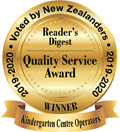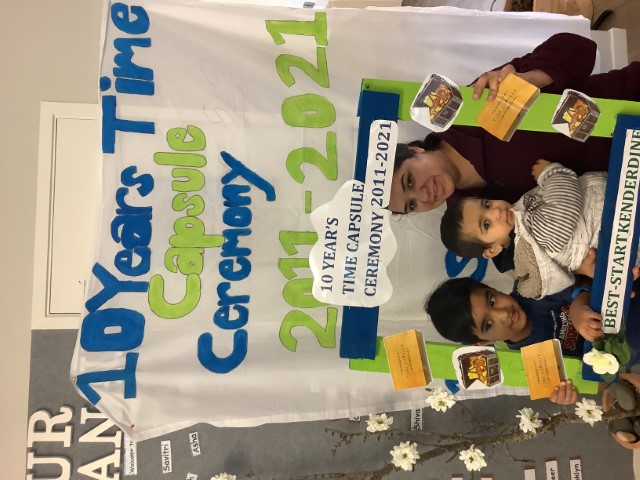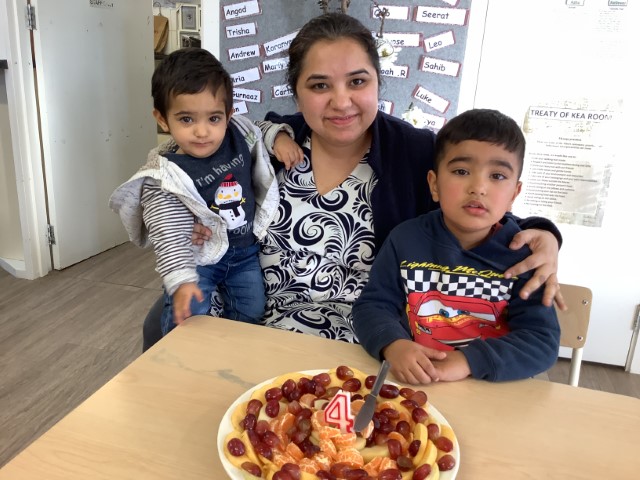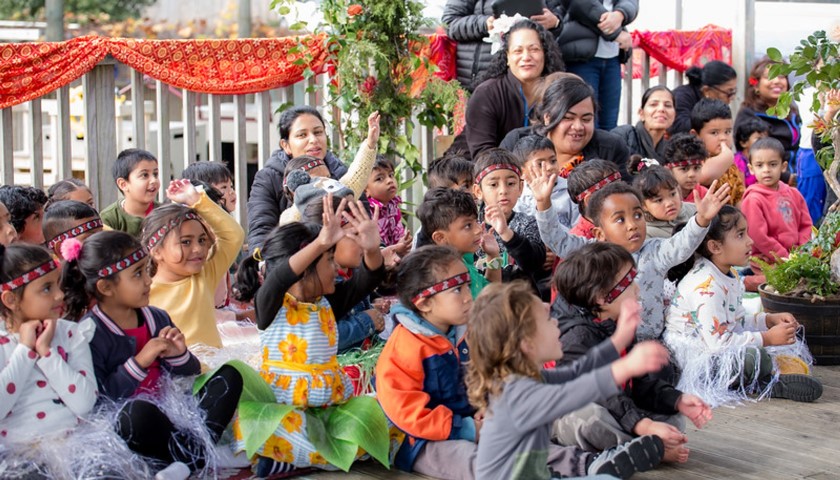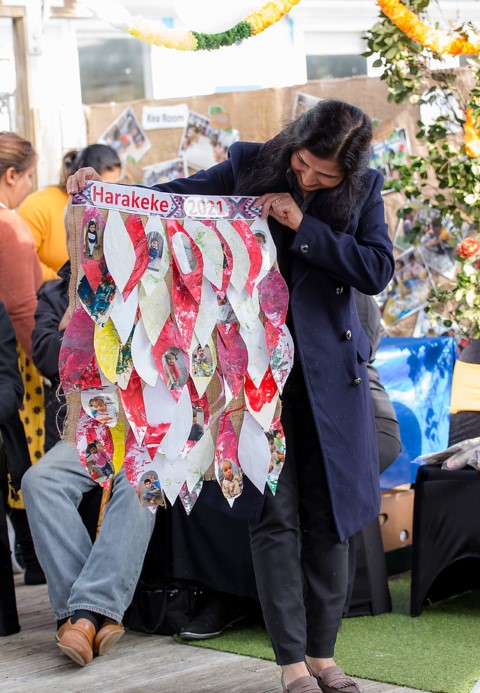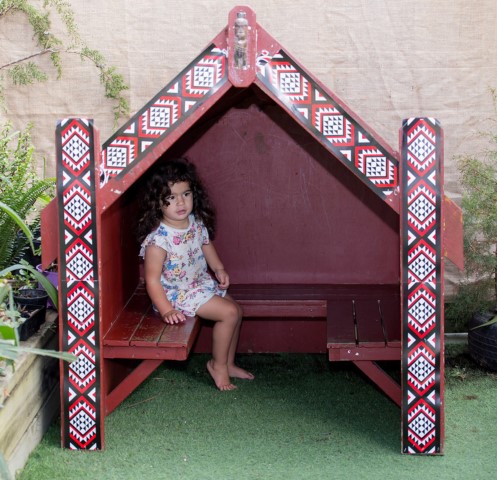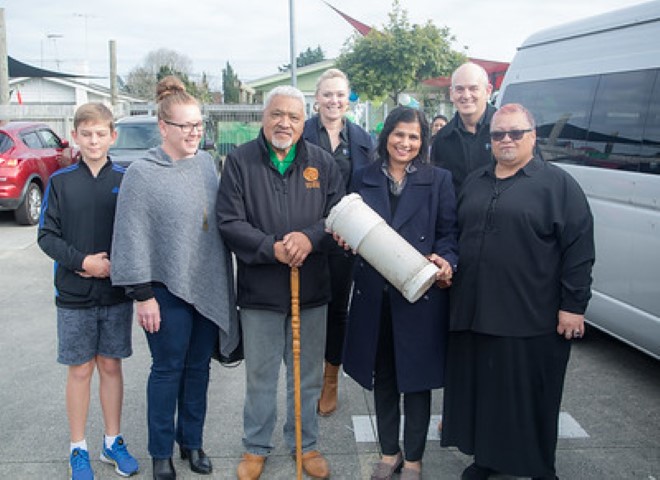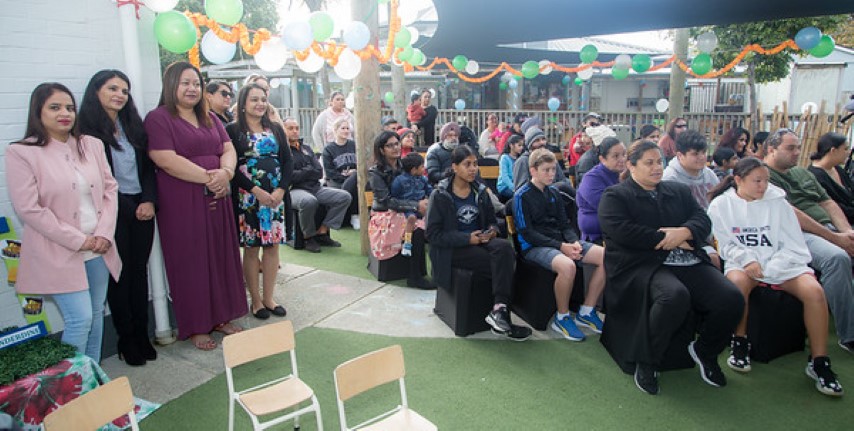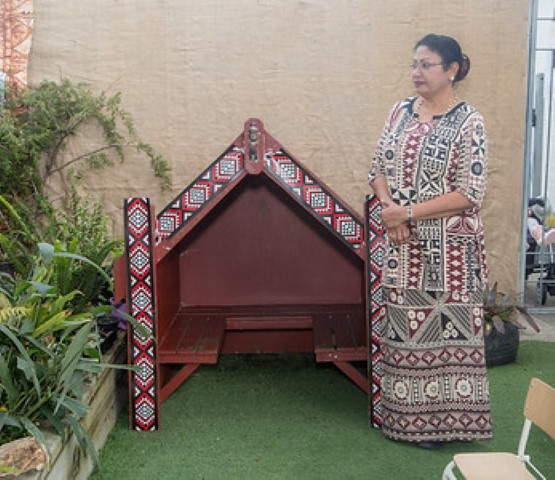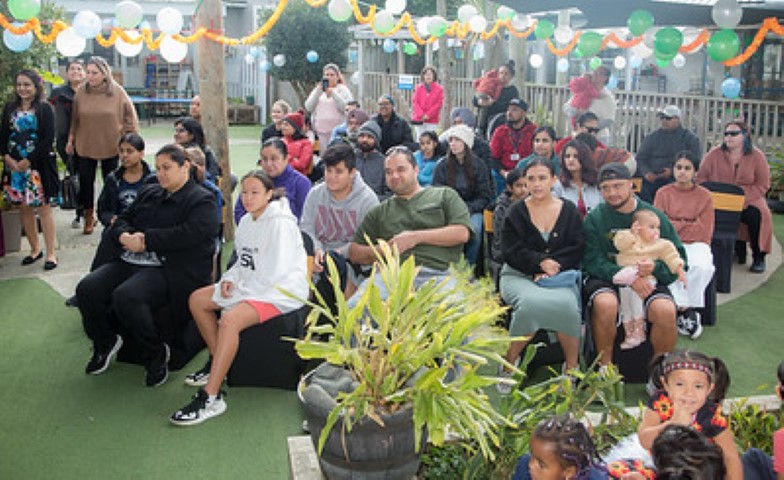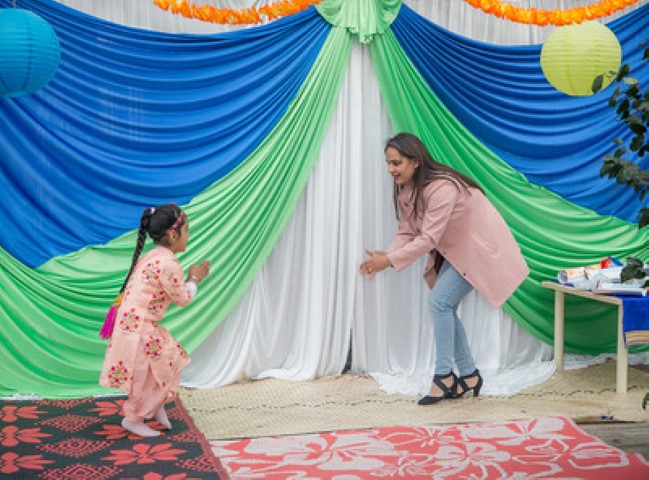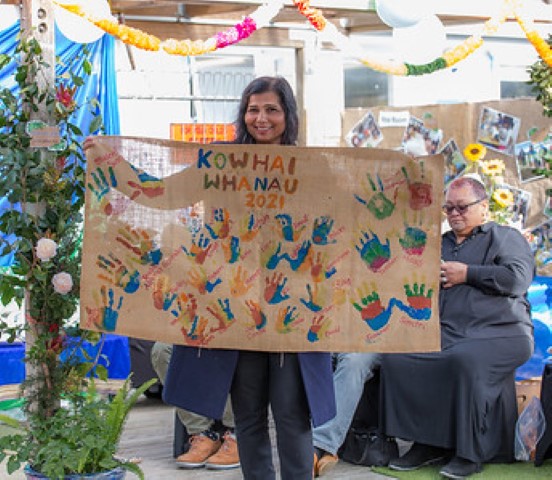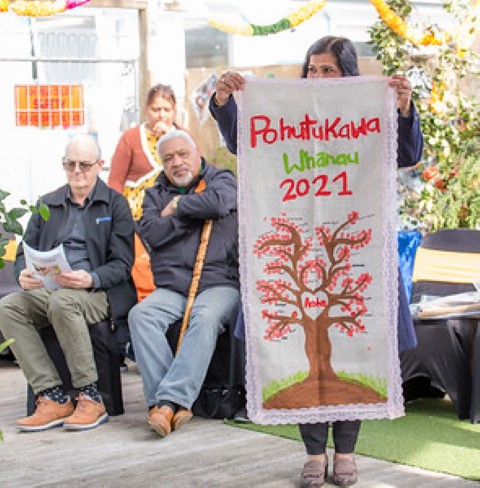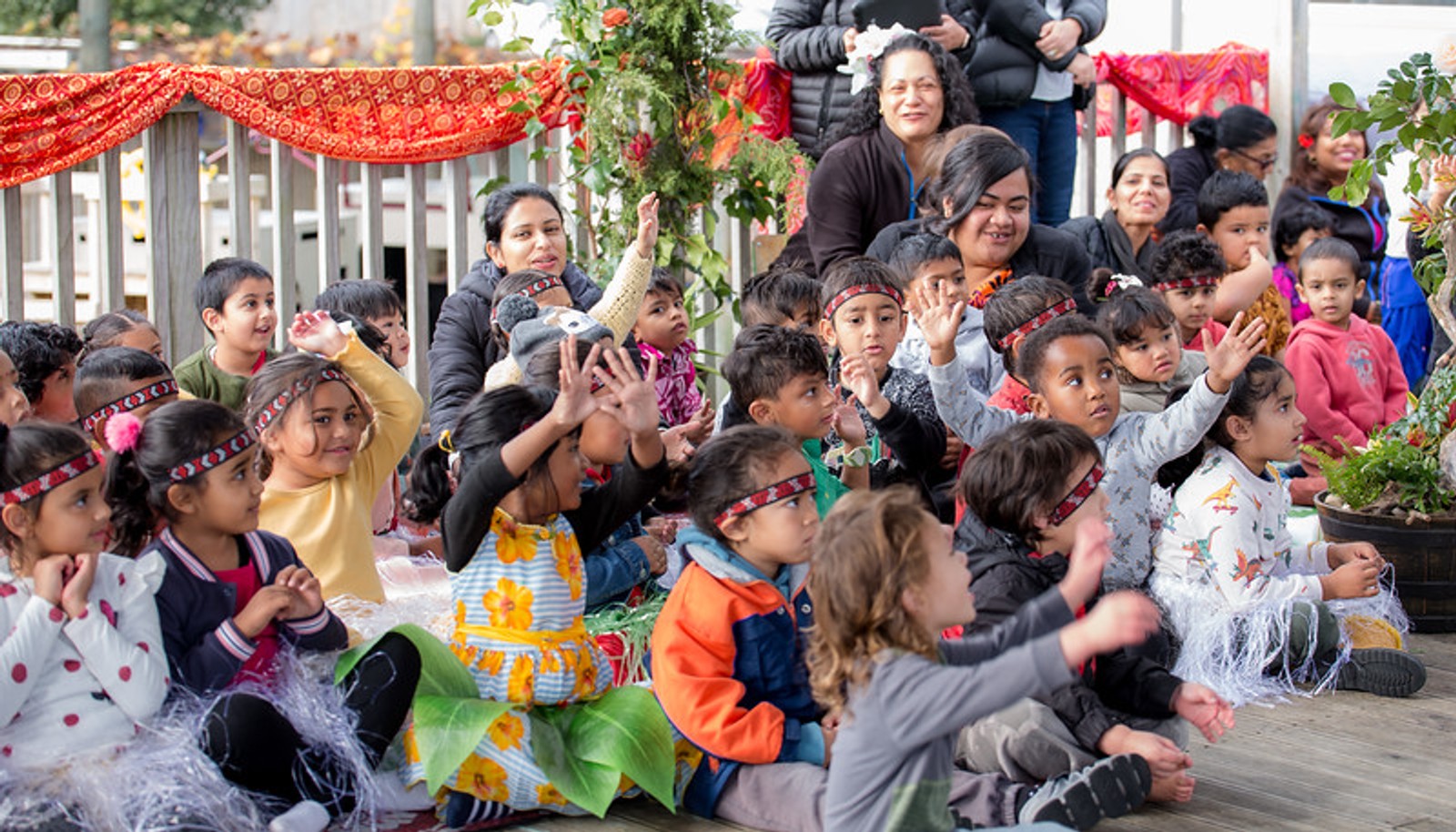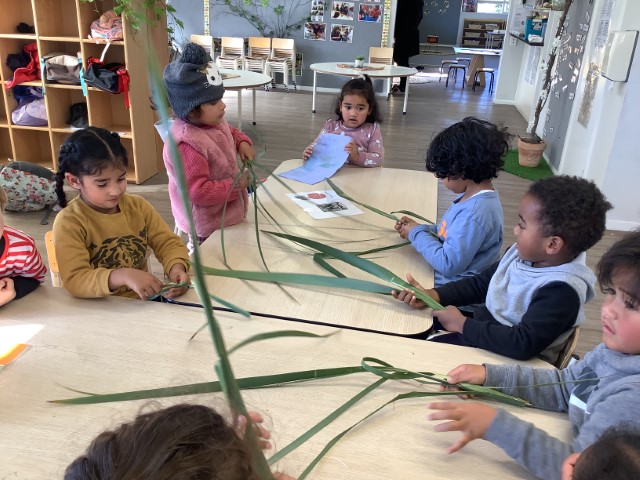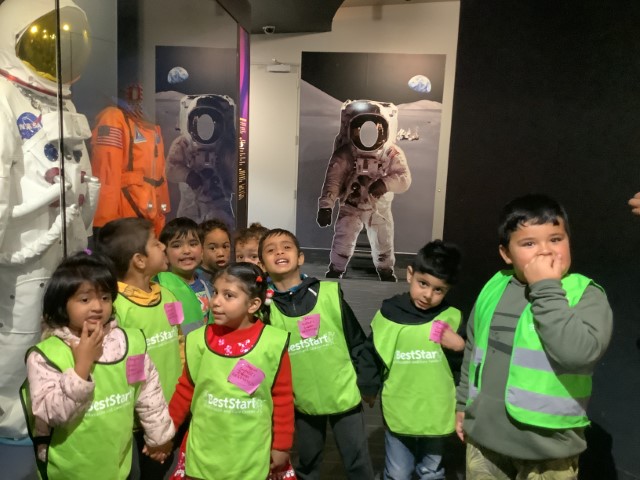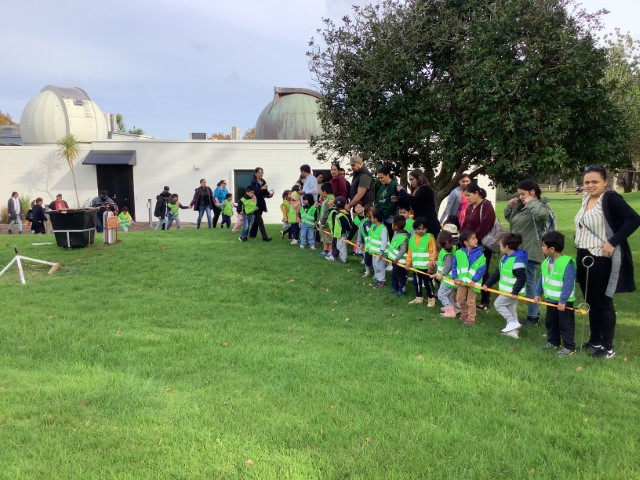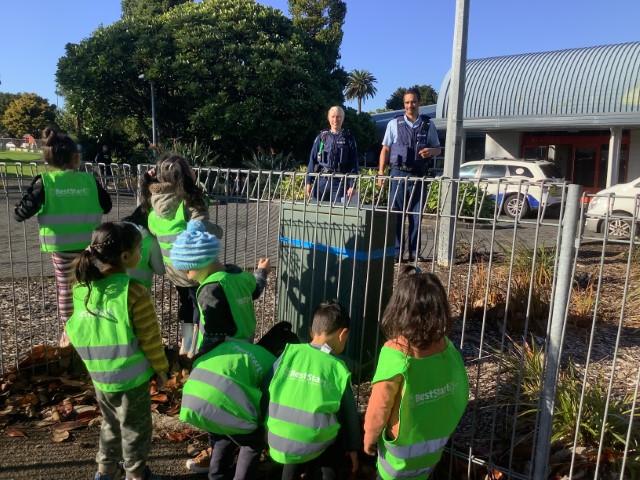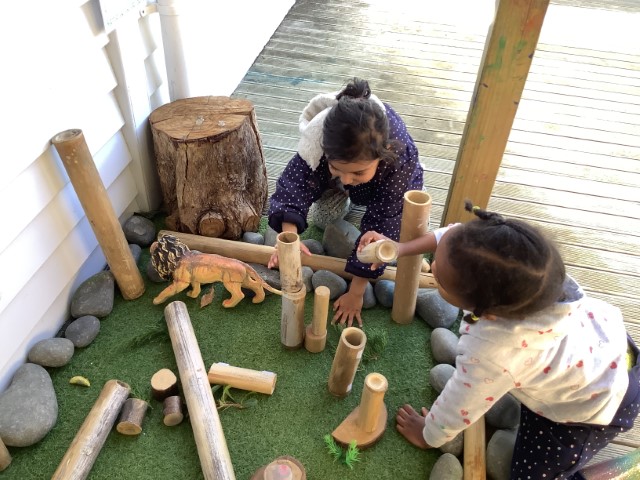LATEST STORIES
Celebrating success at BestStart Kenderdine
In the month of June these were some of memories and celebrations for the unveiling of the Time Capsule and reburying it to open in 2031, and going on trip to stardom to celebrate, receiving the Healthy Heart Award Pā Harakeke and embrace our cultural heritage of celebrating the Maori new year. An eventful month with a range of activities from making poi to weaving, making Maori bread and feasting.
This month also marked to going to stadium gardens and harvesting our vegetables which marked from garden to table. Our tamariki placed hands on experience gardening, caring for plants and collecting from nature materials for collage. We also had community engagement as we got to meet two police officers who were walking through the park and gave a safety chat to our tamariki ma. The children have been engaged in the construction activities using recycled props and materials. They have been also using the natural material to explore and investigate. Some of them have been very creative with their expressive arts. Children have been using art medium and other tools to explore.
Blocks / Poro rākau – Te Whariki
Block play supports learning across all strands of Te Whāriki.
In particular, it supports the Exploration strand, where children gain confidence in and control of their bodies. The Contribution strand recognises that children develop abilities and interests over a wide range of areas. Block play supports this as well as developing perseverance and commitment to a task. Block play, through the Communication strand, supports children to discover and develop different ways to be creative and expressive.
Block play can help children to
• learn about gravity, stability, balance, weight, and trial and error
• understand shape, size, space, depth, width and height
• develop hand–eye coordination and muscles
• learn to plan and ask questions
• gain confidence in their own abilities
• learn to cooperate and share with others.
Adults can support children by
• allowing them to explore at their own pace
• supporting them to put their own ideas into practice
• helping them sort out problems
• listening and talking to them about what they are doing
• encouraging them to help tidy up after the playgroup
• making sure they are safe.
Carpentry / Tārai rākau Te Whāriki
Carpentry can support learning across all strands of Te Whāriki. In particular, children’s developing capability to be expressive is supported in the Communication strand, where they discover and develop different ways to be creative and expressive, and also in the Exploration strand, where children gain confidence and control of their bodies, especially in the fine movements associated with using tools.
Carpentry can help children to
• gain increasing control over their bodies, hand–eye coordination, manipulative skills and muscular strength
• learn to solve problems
• understand length, size, balance and force
• learn to observe, predict and experiment
• learn to share and cooperate with others.
Natural resources Ngā rawa ā-Māori Te Whāriki
All strands of Te Whāriki are supported when children explore with natural resources. In particular, children’s developing knowledge of the natural resources available in our environment is supported in the Exploration strand, where children develop working theories for making sense of the natural and physical world. They learn about the features of their natural environment, and develop a sense of respect and responsibility for natural resources and the important qualities of their environment that are of significance to their family and wider community.
Natural Resources help children to
• develop an appreciation and understanding of the natural world (animals and plants)
• develop a sense of curiosity
• share in the collection of materials for play
• develop a desire to experiment
Visits and Outings / Haerenga Te Whāriki
Going on visits and having visitors supports learning across all the strands of Te Whāriki.
Visits and outings take children out of the playgroup spaces and into the world beyond. In particular, the Contribution strand supports children’s learning with other children. The Belonging and Well-being strands encourage children to develop comfort with a moderate degree of change.
Visits and outings might support learning about culture (Communication strand) or learning about the natural world (Exploration Strand). Visits and outings help children to
• learn to question and explore
• understand what’s going on around them
• learn new words based on what they see
• feel part of the community they live in.


